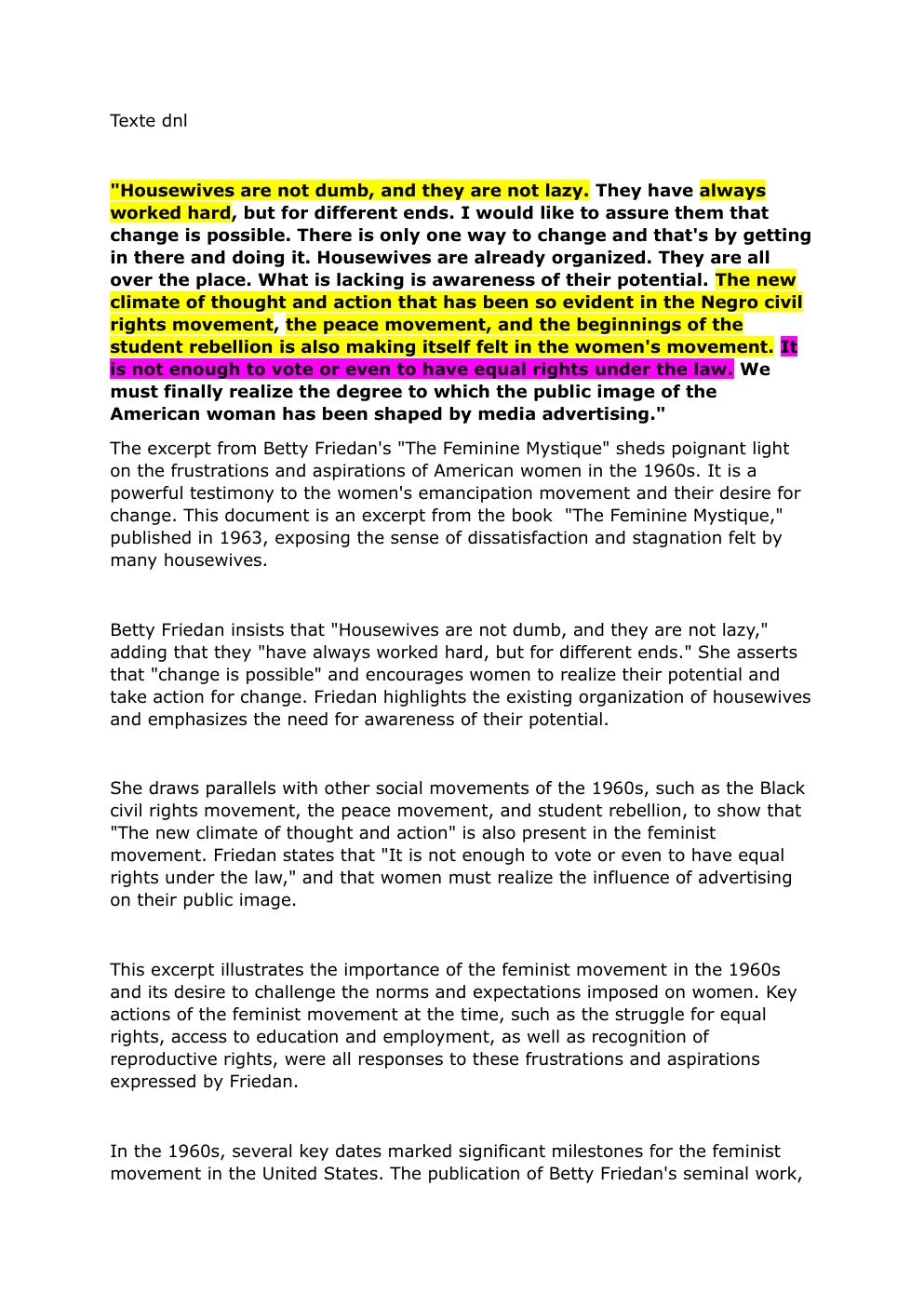analyse d'un extrait du livre de Betty Friedan
Publié le 21/06/2024
Extrait du document
«
Texte dnl
"Housewives are not dumb, and they are not lazy.
They have always
worked hard, but for different ends.
I would like to assure them that
change is possible.
There is only one way to change and that's by getting
in there and doing it.
Housewives are already organized.
They are all
over the place.
What is lacking is awareness of their potential.
The new
climate of thought and action that has been so evident in the Negro civil
rights movement, the peace movement, and the beginnings of the
student rebellion is also making itself felt in the women's movement.
It
is not enough to vote or even to have equal rights under the law.
We
must finally realize the degree to which the public image of the
American woman has been shaped by media advertising."
The excerpt from Betty Friedan's "The Feminine Mystique" sheds poignant light
on the frustrations and aspirations of American women in the 1960s.
It is a
powerful testimony to the women's emancipation movement and their desire for
change.
This document is an excerpt from the book "The Feminine Mystique,"
published in 1963, exposing the sense of dissatisfaction and stagnation felt by
many housewives.
Betty Friedan insists that "Housewives are not dumb, and they are not lazy,"
adding that they "have always worked hard, but for different ends." She asserts
that "change is possible" and encourages women to realize their potential and
take action for change.
Friedan highlights the existing organization of housewives
and emphasizes the need for awareness of their potential.
She draws parallels with other social movements of the 1960s, such as the Black
civil rights movement, the peace movement, and student rebellion, to show that
"The....
»
↓↓↓ APERÇU DU DOCUMENT ↓↓↓
Liens utiles
- Analyse caractères La bruyère paragraphes 27 et 28 du cinquième livre des Caractères intitulé De la société et de la conversation
- analyse linéaire remarque 74 livre VIII La bruyère
- Le Jeu de l’Amour et du hasard- extrait de la scène 8 de l’acte III– récapitulatif de cours pour une analyse linéaire à l’oral
- Analyse linéaire n°11 : Portrait de Julien Sorel (Livre 1, chap.4)
- analyse linéaire malade imaginaire acte 3 scène 3: En quoi cet extrait constitue-t-il une mise en abyme ?


